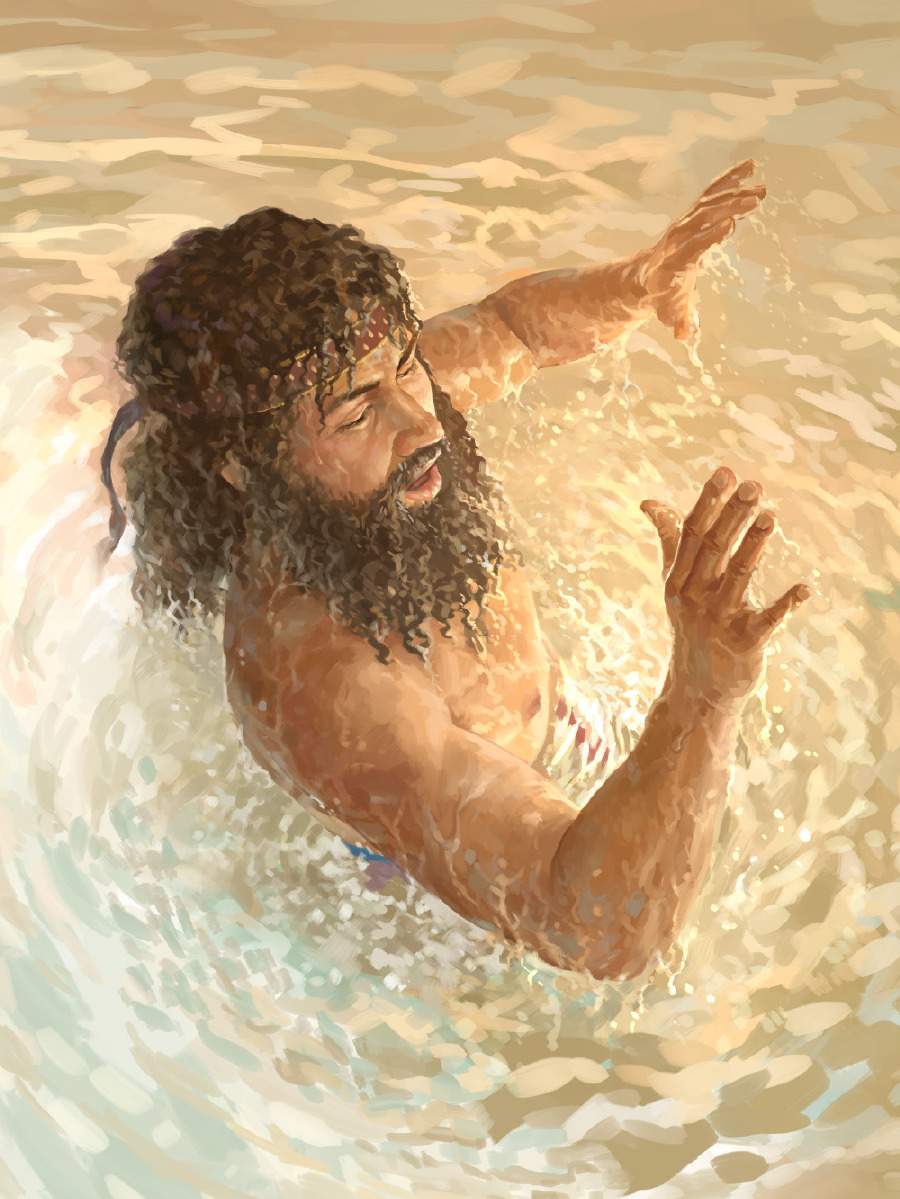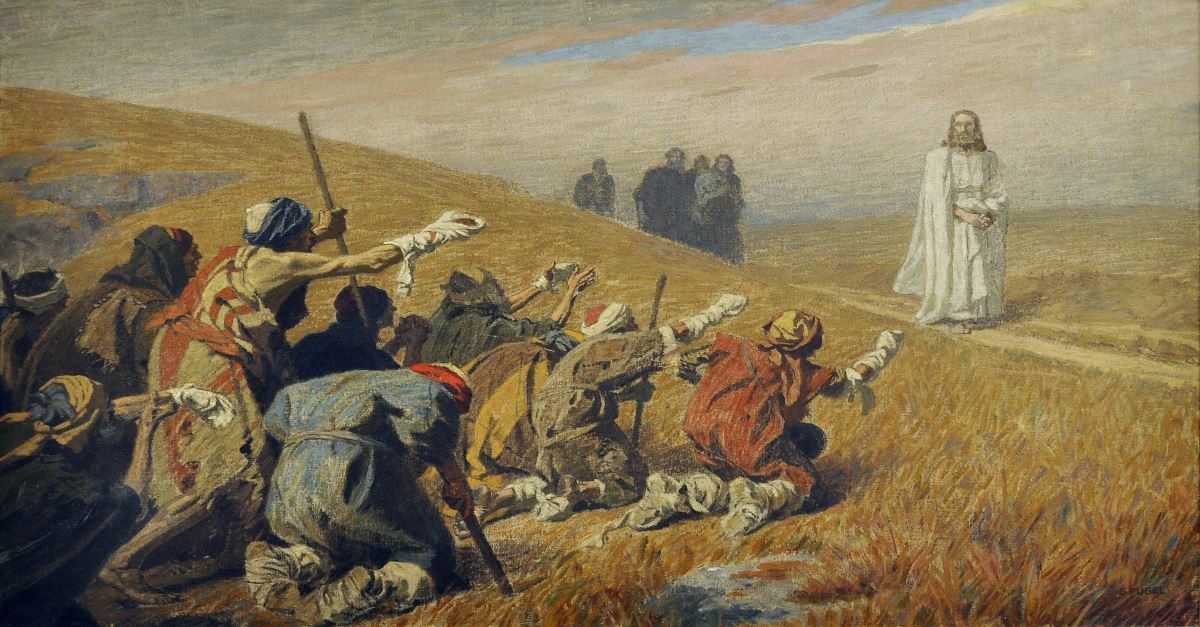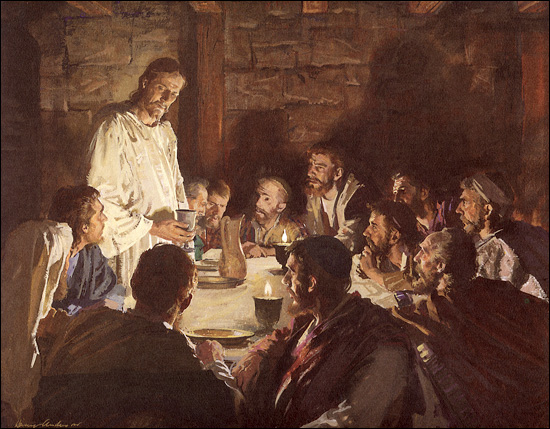
The Thirtieth Sunday of Ordinary Time (Year C)
Sirach 35:12-14, 16-18
Psalm 34:2-3, 17-18, 19, 23
2 Timothy 4:6-8, 16-18
Luke 18:9-14
What kind of person is despised for their poor, unholy reputation? Drug dealers? Rock stars? Abortionists? People calling about the warranty on your car? Then, what kind of person is respected for their high moral reputation? Monks? Teachers? Nurses? That’s the contrast that Jesus sets up in his parable.
A person of a very respected group. A pharisee. We have a jaded opinion of pharisees because most of what we know about them comes from their conflicts with Jesus, and his criticisms of them (such as in today’s reading!). But they were highly respected for their reputation for righteousness. The Pharisee movement was a call to radically live the requirements of the laws of righteousness, and in general they were well-respected for their knowledge of the scriptures, the law, and their propriety. Tax collectors on the other hand, were reviled by the Jewish people. Tax collectors were Jews who paid the Romans in advance for the money due to Rome for taxes, and then collected the taxes from their fellow Jews to repay themselves, often with a comfortable margin for profit. The fact that most tax collectors were rather wealthy, and rather unforgiving toward their fellow Jews who struggled to pay their taxes, didn’t help their reputation. In other words, they collaborated with the Romans and stole from the Jews. Hence, they were considered by their fellow-Jews to be traitors, unclean and sinful. So Jesus sets up this contrast in his parable: the obvious good guy, the pharisee; and the obvious bad guy, the tax collector. The pharisee, no stranger to the temple, goes up and gives a litany of his righteous habits. The tax collector timidly slips in the back, and mutters a pathetic little prayer.
We talked a few weeks ago about the parables of Jesus having two very common features: the unexpected twist, and the moral lesson (in Hebrew, the “nimshal“) at the end. And this parable fits that description. “I tell you, the latter went home justified, not the former.” There’s the surprise twist. “For whoever exalts himself will be humbled, and the one who humbles himself will be exalted.” And there’s the moral lesson at the end.
Jesus’ criticism of the pharisee echoes the prophets’ complaints about the Temple sacrifices for centuries before that: people doing the religious actions required by the law, but without the religious devotion, contrition, and holy life those actions are supposed to express. Outward holiness must be the fruit of inward holiness. And this pharisee has a long way to go toward inward holiness. St. Luke even introduces this parable saying, “Jesus addressed this parable to those who were convinced of their own righteousness and despised everyone else.” So let’s look first at the prayer the pharisee offered: “The Pharisee took up his position and spoke this prayer to himself. ‘O God, I thank you that I am not like the rest of humanity—greedy, dishonest, adulterous—or even like this tax collector. I fast twice a week, and I pay tithes on my whole income.’”
So first, he “spoke this prayer to himself.” His prayer is addressed to God, but he’s praying to himself. He’s replaced God with himself. That’s the definition of pride. 1, he trusted in himself and his righteousness, and 2, he despised others.
“I thank you that I am not like the rest of humanity—greedy, dishonest, adulterous.” So he’s not praising God for God’s mercy and glory, he’s praising himself for being better… than the rest of humanity. Wow. And then he lists the ways he’s better, by the opposites of his own strengths: as a pharisee, he overpays on his tithes, follows the letter of the law, and is scrupulously righteous; therefore “the rest of humanity” is greedy, dishonest, and adulterous.
And then he says, “or even like this tax collector.” The great 5th century homilist St. John Chrysostom commented on this, “To despise the whole race of man was not enough for him; he must yet attack the tax collector. He would have sinned, yet far less if he had spared the tax collector, but now in one word he both assails the absent, and inflicts a wound on him who was present… To give thanks is not to heap reproaches on others.”
If you’re one of the people who have confessed being judgmental and condemning strangers, especially people who appear to have made a life with a pattern of bad choices, that’s like this pharisee: “At least I’m not as bad as that loser.” The good news is that you’re not alone. The bad news is it’s clearly an uncharitable habit that needs to be broken. Jesus just called you out.
So that’s enough picking on the pharisee for now. Let’s turn now to the underdog hero of our story, the miserable tax collector. Here’s where we get the connection to the other readings.
“But the tax collector stood off at a distance.” Ok. Score one for the people in the back pews.
He “beat his breast and prayed.” This is a common expression of penitence. In the Penitential Act of the Mass, the Church instructs us to strike our breast, as we say, “Through my fault, through my fault, through my most grievous fault.” “Mea culpa, mea culpa, mea maxima culpa.” We’re humbly expressing our sorrow for our guilt. First we have to have a sense of sin, that there are things that are objectively and truly in conflict with God’s law of goodness. And we have to examine our conscience and acknowledge that we have sinned, and we’re owning up to it. And we’re contrite, we’re sorry for our faults.
The tax collector simply and earnestly prays, “O God, be merciful to me, a sinner.” That’s the way to confess sin. Often in the confessional, a penitent (usually one who isn’t frequently in the confessional) will say something like, “Well, I do this bad thing, and that bad thing, because this and that (implying, ‘so it’s not really my fault’). But I do this good thing and that good thing.” No, that’s now how this works. Confession isn’t where we explain away our guilt, and we don’t go into describing our good things, justifying ourselves. That’s the pharisee. Confession is just that: humble, straightforward confession of our guilt and sin against God, our wounds where we need God’s mercy to forgive and heal us. Like this tax collector, who, moved by God’s holiness, and his own lack of holiness, simply and honestly prays for mercy.
Remember tax collectors were generally pretty wealthy. But here’s a tax collector who has been moved by God to come to the Temple, to the presence of God, and confess his spiritual poverty, his many sins, against God and against his neighbor, and his utter dependence on God for mercy and reconciliation and salvation. And it is the tax collector who went home justified, forgiven, reconciled.
In another commentary by St. John Chrysostom, who was referenced earlier, he says, “This parable represents to us two chariots on the race course, each with two charioteers in it. In one of the chariots it places righteousness with pride, in the other sin with humility. You see the chariot of sin outstrip that of righteousness, not by its own strength but by the excellence of humility combined with it. But the other is defeated not by righteousness, but by the weight and swelling of pride. For as humility by its own elasticity rises above the weight of pride, and leaping up reaches to God, so pride by its great weight easily depresses righteousness.”
I’m also reminded of an earlier passage in St. Luke’s Gospel, when Jesus said to the Pharisees, “Those who are healthy do not need a physician, but the sick do. I have not come to call the righteous to repentance but sinners.” Jesus was trying to tell the Pharisees that they, too, are sick and in need of repentance and not as righteous as they think. But the Pharisees were too proud to understand. But the tax collectors, prostitutes, and sinners, they were well aware of their sin, their spiritual poverty, and were joyful that the divine physician had come to heal and restore them to justice and spiritual health. One commentary on our gospel reading said, “The Pharisee got what he asked for, which was nothing, while the tax collector got what he asked for, which was everything.”
One of my favorite movies is “Son of God,” directed by Christopher Spencer, and produced by Mark Burnett and Roma Downey. It’s the Gospel follow-up movie to their History Channel series, “The Bible.” And my favorite scene from this movie combines this parable of the Pharisee and the Tax Collector, and the calling of Matthew, the tax collector.
Our first reading, from the Old Testament wisdom author Sirach, says, “The prayer of the lowly pierces the clouds; it does not rest till it reaches its goal, nor will it withdraw till the Most High responds…” This is echoed in our Psalm, “The LORD is close to the brokenhearted; and those who are crushed in spirit he saves.” St. Paul says our second reading, “But the Lord stood by me and gave me strength… and I was rescued from the lion’s mouth.”
God is awesome, and perfect, and glorious. And He pours His glory upon us as His love and mercy. We know we can only be made holy by His grace, and our receptivity to His grace; His invitation and our response.
In this life, and in our final judgment for the life to come, if (and wherever in our life) we rely on our own righteousness, we fall, proud and unrepentant, and we will be humbled when we are locked out, where there is wailing and gnashing of teeth. But if we humbly prostrate ourselves before Him in utter dependence (especially when we are suffering and brokenhearted), He exalts us. He heals us and unites us to Himself and the saints and angels in holy communion for all eternity. For whoever exalts himself will be humbled, and the one who humbles himself will be exalted.



 And then this is where our reading picks up.
And then this is where our reading picks up. 
 Over this “cup of salvation” Jesus will later speak: “This cup is the new covenant in my blood.” In the Liturgy of the Eucharist, we bring bread and wine to the priest. The priest offers it to God. God accepts the sacrifice, and changes it into the even greater sacrifice of the meat/substance/reality of the Lamb of God, the perfect sacrifice. God then accepts that sacrifice, and then the priest gives it back to us for our thanksgiving feast with our family and friends, as we share with each other our stories of how God has saved us from our distress.
Over this “cup of salvation” Jesus will later speak: “This cup is the new covenant in my blood.” In the Liturgy of the Eucharist, we bring bread and wine to the priest. The priest offers it to God. God accepts the sacrifice, and changes it into the even greater sacrifice of the meat/substance/reality of the Lamb of God, the perfect sacrifice. God then accepts that sacrifice, and then the priest gives it back to us for our thanksgiving feast with our family and friends, as we share with each other our stories of how God has saved us from our distress.

 But for mulberry trees, the distance was doubled to 60 feet, because of how notoriously spread out their roots would grow.
But for mulberry trees, the distance was doubled to 60 feet, because of how notoriously spread out their roots would grow. He teaches us that if we are doing great works of generosity and kindness, and if we are faithfully living the teaching of the Church, and we’re fighting against sin… we shouldn’t be bragging about our greatness, and expecting a gold star sticker. Living out the truth God gave us is simply the expectation. And our response should be, “
He teaches us that if we are doing great works of generosity and kindness, and if we are faithfully living the teaching of the Church, and we’re fighting against sin… we shouldn’t be bragging about our greatness, and expecting a gold star sticker. Living out the truth God gave us is simply the expectation. And our response should be, “